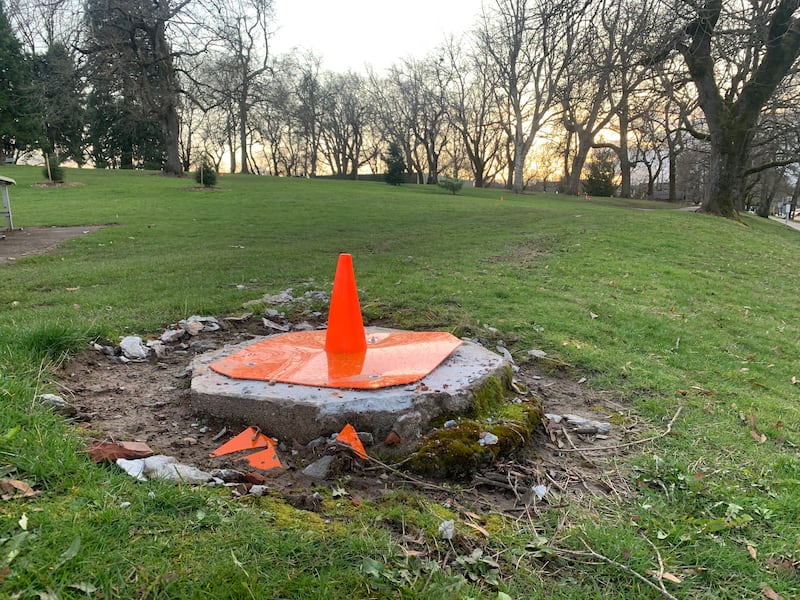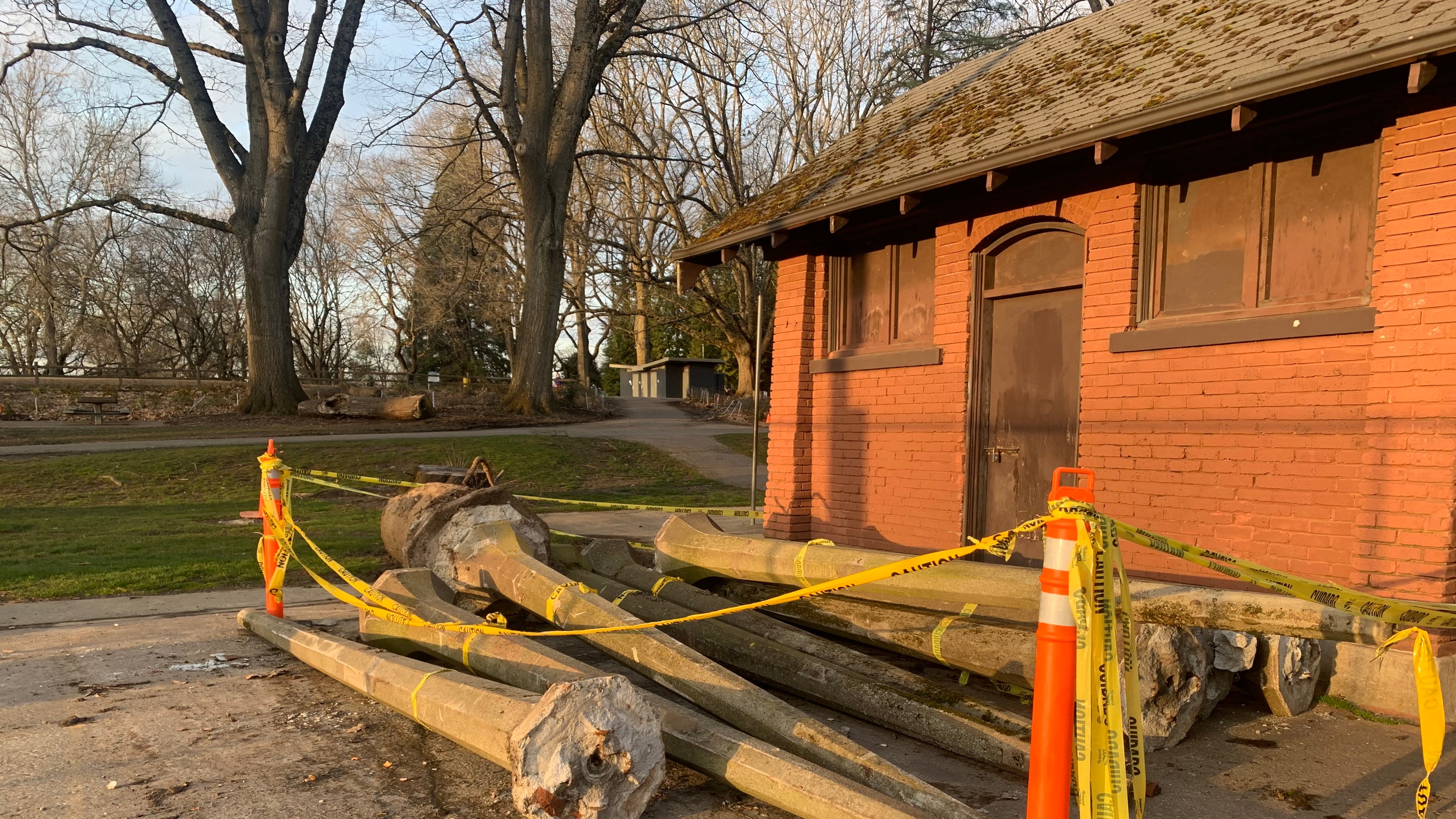Portland Parks & Recreation has begun a mass removal of light poles from 12 of its parks across the city, citing a recent study that revealed structurally unsound bases.
In Irving Park on Wednesday evening, at least 61 of the park’s 78 light poles were gone, each replaced with an orange cone. Seventy-three of the park’s 78 total lights will be removed, according to the parks bureau. Irving is one of only two parks that will receive replacement lights; the remaining 140 light poles in the other 10 parks will go without replacements. That’s because, according to parks officials, the bureau has no money to replace the remainder of the lights being removed.
Even so, it will take the city 16 months to replace the lights in Irving Park and Mt. Scott Park in Southeast.

According to records obtained last month, the city launched its study of lamp stability after a light pole partially crushed a woman who had suspended her hammock between one of the poles and a tree. An attorney representing the woman sent a tort claim notice to the city in July, a little over a month after the incident. (A tort claim notifies the recipient that the sending party intends to sue.)
On Thursday, three weeks after WW requested the study that provided the rationale for the light-pole removal, the parks bureau denied the records request, claiming the study was exempt from disclosure because of “litigation” and “internal advisory communications.”
That means the public is not privy to the basis of the city’s decision to make 12 city parks significantly darker.
The light removal comes at a time when the parks bureau is facing $600 million worth of deferred maintenance across its facilities. State Rep. Travis Nelson (D-Portland) is crafting a bill that, if passed, would allow the city of Portland to create a parks district—a special municipal district that can levy its own taxes in order to create a stable funding stream for the city’s parks.
The removal of the light poles serves as a kind of advertisement for the parks district idea. But the city isn’t bluffing: A dozen parks really are going dark this summer. The reason why remains in the dark as well.

